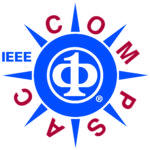STA 2023: The 15th IEEE International Workshop on Software Test Automation
Technical Program
*= in-person presentation in Torino
Detecting Hidden Failures of DBMS: A Comprehensive Metamorphic Relation Output Patterns Approach
Matthew Siu-Hin Tang, T.H. Tse and Zhi Quan Zhou
Metamorphic Testing of an Automated Parking System: An Experience Report*
Dave Towey, Zepei Luo, Ziqi Zheng, Peijian Zhou, Junbo Yang, Puttipatt Ingkasit, Changyang Lao, Matthew Pike and Yifan Zhang
Automated Metamorphic-Relation Generation with ChatGPT: An Experience Report*
Yifan Zhang, Dave Towey and Matthew Pike
Testing Compilers with Obfuscators: A Metamorphic Experience*
Injae Cho, Dave Towey and Pushpendu Kar
Improving Fault Localization by Complex-Fault Oriented Higher-Order Mutant Generation
Yong Liu, Zexing Chang, Shumei Wu, Doyle Paul, Haifeng Wang and Xiang Chen
Enhancing the Formal Verification of Train Control Systems based on Decomposition
Tengfei Li, Junfeng Sun, Xinjun Lv, Xiang Chen, Jing Liu, Haiying Sun
A Standard Baseline for Defect Prediction
Nitin Sai Bommi and Atul Negi
Goal of the workshop:
Test automation aims to reduce the cost and improve the effectiveness of software testing by using various techniques and methods. Other benefits are consistency and accuracy, reduction of overall test cycle time, risk mitigation of manual testing, and increase in overall product quality. Recording test activities as test scripts and playing the test scripts or record and playback are the common methods. More advanced methodologies include data-driven, keyword-driven and hybrid methods as well as framework-based methods. Among tool development, interoperability remains a major challenge.
Workshop theme:
To thrive in this increasingly uncertain world, innovations of computer hardware, software, and applications have emerged as a pressing need. The emerging interconnected world demands new developments in sensor-based communication hardware and operating systems. Software engineering continues to prove essential to our daily lives ranging from financial services, health care, remote learning platforms, social networks to the era of connected and autonomous vehicles, and artificial intelligence control. Governing organizations have responded to this trend by defining regulations and standards to address issues such as safety, security, and resiliency of computer hardware and software systems and applications. However, unique challenges originate from mandating these requirements under uncertainty in the absence of sound and complete solutions applicable to these new types of systems and applications. As computer researchers, we see these challenges as opportunities to fill gaps in how all dimensions of computing are developed, utilized, and supported. How to improve the resiliency of these components across a wide range of use domains is a significant challenge we suddenly find ourselves facing. How do we design systems that are able to withstand the stress of global-scale use, and still provide robust and secure services to end-users? Accordingly, submissions including applications and case studies in these areas will highly be appreciated.
Scope of the workshop:
Topics of interest include, but are not limited to, the following:
- Test automation for large, complex systems
- Performance, Regression, Reliability testing, Mean Time between Failures (MTBF)
- Testing in Continuous Integration / Continuous Development (CI/CD) pipeline and DevOps.
- Early defect detection, exploratory testing, reducing development timeline
- Test-driven development and behavior driven testing
- Open Source
- Test modeling and test methodologies
- Model Based Testing, Keyword Based Testing, Combinatorial testing, Test input generation
- Test-driven development and behavior driven testing
- Application in different domains – digital world, cloud computing, HPC, healthcare
- Experiments, empirical studies, experience reports, and case studies.
- Design of high-quality, reusable tests, test reuse, libraries, Product Line Testing
- Support for testing methods, test framework, test infrastructure.
- Management of distributed test assets and test environments
- Development, operation, integration, and standardization of test tools
- Test metrics to measure test efficiency and test coverage optimization
- Test efficiency, Test effectiveness, and Lean testing approaches.
- Quantitative studies including cost vs. benefit studies.
Paper Templates
IEEE Paper templates are available in MS Word 2003 and LaTex. All submissions must use US 8.5×11 letter page format.
Important Dates
Main Conference/Symposium
Main conference/symposium papers due: 15 January 2023Extended to 15 February 2023
Notification: 7 April 2023
Camera-ready and registration due: 7 May 2023 Updated: 18 May 2023
Journal then Conference Submissions
Due date: April 7, 2023
Notifications: April 30, 2023
Workshops, Fast Abstract, SRS Programs
EXTENDED: Workshop papers due: 21 April 2023
UPDATED: Notifications: 7 May 2023
UPDATED: Camera-ready and registration due: Updated: 18 May 2023
Submission Link
Please submit your paper on EasyChair
IEEE Conference Publishing Policies
All submissions must adhere to IEEE Conference Publishing Policies.
IEEE Cross Check
All submission will be screened for plagiarized material through the IEEE Cross Check portal.
Workshop Organizers
Rajesh Subramanyan, Amazon, USA
Email: subramanr19@gmail.com
T.H. Tse, The University of Hong Kong
Email: thtse@cs.hku.hk
Emeritus
Fevzi Belli, University of Paderborn
Email: belli@upb.de
Program Committee
Xiaoying Bai, Tsinghua University, China
Christof Budnik, Siemens, USA
Arilo Claudio, Federal University of Amazonas, Brazil
Atilla Elci, Hasan Kalyoncu University,
Jerry Gao, San Jose State University, USA
Ron Kenett, KPA Ltd, Israel
Yvan Labiche, Carleton University, Canada
Juncao Li, DoorDash, USA
Aditya Mathur, Purdue University, USA
Ina Schieferdecker, Fraunhofer FOKUS, Germany
Marek Stochel, Motorola Solutions, Poland
Guilherme Travassos, Federal University of Rio de Janerio (COPPE/UFRJ), Brazil
Dragos Truscan, Ãbo Akademi University, Finland
Tugkan Tuglular, Izmir University, Turkey
Mario Winter, Univ. of Applied Science, Cologne, Germany
Dave Towey, The University of Nottingham, Ningbo, China
Fie Xie, Portland State University, USA
Hong Zhu, Oxford Brookes University, UK

